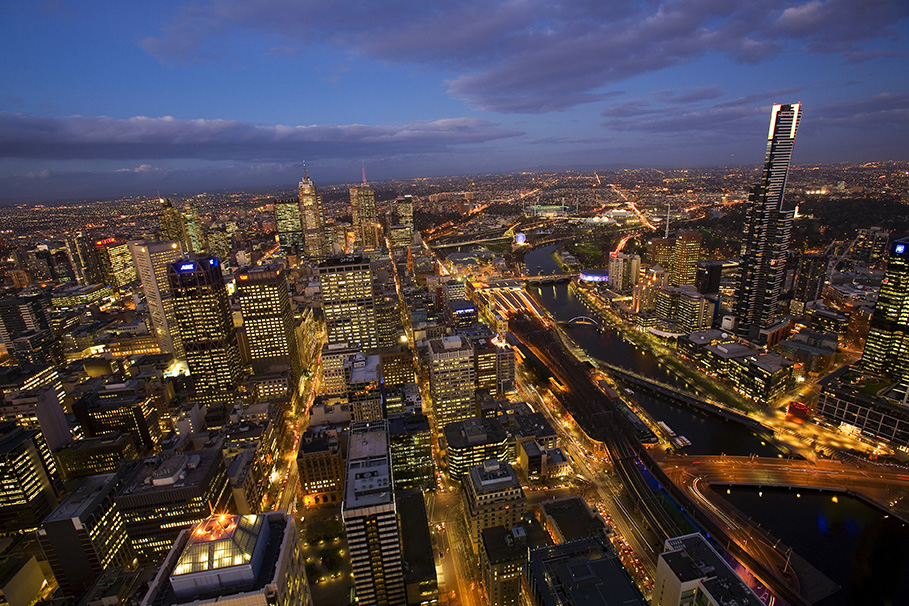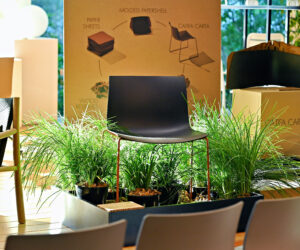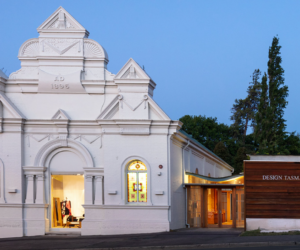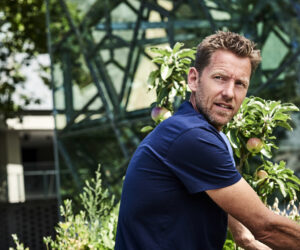Melbourne unites to support renewable energy
In an Australian first, some of Melbourne’s most iconic businesses, universities, cultural institutions and Councils have united to drive new investment in renewable energy.
Led by the City of Melbourne, the consortium includes the University of Melbourne, RMIT, National Australia Bank, NEXTDC, the City of Port Phillip, Moreland City Council, Federation Square, Melbourne Convention and Exhibition Centre, Citywide and Bank Australia.
Lord Mayor Robert Doyle said the Melbourne Renewable Energy Project aims to support the development of a new renewable energy plant that will supply energy to the group at a competitive rate.
“Diversifying our energy supply and supporting innovation is a must for the future of our city. You don’t get to be the most liveable city in the world without a strong focus on sustainability and prosperity,” the Lord Mayor said.
“Our group aims to purchase 120GWh of energy. That’s enough to power more than 31,000 households in Melbourne for a year.”
“We expect this project will provide a major boost to employment within the renewable energy sector. Up to 140 jobs will be created in the construction phase and 12 ongoing jobs in operation and management of the plant.”
The group is preparing to go out to market and industry briefings for the energy sector will be held on 15 December 2015. Tender documents are expected to be released in the New Year and responses will be sought from new renewable energy projects that are shovel-ready and have planning approvals in place.
Chair of the City of Melbourne’s Environment Portfolio, Cr Arron Wood said the announcement comes a year after Council launched a Request for Information process, which resulted in widespread interest from Australian and international companies operating in the wind, solar and biomass sectors.
“We have extensively tested the renewable market to gauge the viability of a group purchasing approach and the market has responded with a resounding ‘yes’,” Cr Wood said.
“Transitioning to a clean energy future is not only good for the environment; it’s a smart long-term business decision.
“We’re creating a blueprint to inspire other organisations who want to see more investment in renewable energy in Australia. It’s a win for regional jobs and a win for a sustainable Melbourne.”
Using a renewable source to meet the group’s energy needs will save 151,200 tonnes of carbon emissions each year, which is the same as planting more than 175,000 trees.
The City of Melbourne is committed to achieving carbon neutrality by 2020 and has a target to source 25 per cent of the city’s energy from renewable sources by 2018. Currently, only 12 per cent of Victoria’s electricity is derived from renewable energy. We hope to see other organisations replicate the group purchasing approach to drive new investment in renewable energy.
Quotes attributable to partners:
RMIT University’s Chief Operating Officer and Vice-President Resources, Stephen Somogyi: “The Melbourne Renewable Energy Project is an excellent initiative which provides a key opportunity for RMIT University to demonstrate sustainability leadership within the community. It aligns with our existing sustainability commitments and priorities – in particular, the Sustainable Urban Precincts Program, our $98 million plan to reduce energy, water use and greenhouse gas emissions, through the upgrade of ageing infrastructure of 90 buildings across our three campuses.”
The University of Melbourne’s Chief Financial Officer and Vice-Principal of Administration and Finance, Allan Tait: “We’re proud to be involved in the Melbourne Renewable Energy Project, as we take seriously our responsibility as a public-spirited and global university to lead debate and act on sustainability issues. The Project is an important part of the University’s commitment to sustainability across all of its core activities, and comes as we develop an institution-wide Sustainability Charter, an enduring commitment that will also guide the University’s sustainability planning for the next five years. The University has already put in place a number of projects that focus on developing renewable energy capacity on site.”
National Australia Bank Group Executive, Enterprise Services and Transformation, Renée Roberts: “NAB recognises that we have an important role to play in assisting the transition to a low carbon economy, both through the energy we purchase for our business and our lending activities. As the leading project financer for renewable energy in Australia, we believe sourcing electricity for our business through renewable energy is another way we can stimulate business growth.”
Managing Director of Bank Australia Damien Walsh said: “The Melbourne Renewable Energy Project will help Bank Australia in its commitment to purchasing 100 per cent renewable electricity. We’re a customer owned, responsible bank, and our customers have told us that renewable energy is a priority for them. By enabling new investment in renewable energy, the project will also help Bank Australia to meet our customers’ expectations.”
NEXTDC Chief Operating Officer Simon Cooper: “The Melbourne Renewable Energy Project is a very important initiative by the City of Melbourne, which I am extremely pleased to see move to this next stage. NEXTDC was a member of this initiative from its earliest days, as it aligns closely with our business objectives and supports our ongoing investment in enabling renewable energy production. Operating data centres requires massive amounts of electricity, and NEXTDC has a proven commitment to optimising energy use and minimising its environmental impact as much as is possible. Investing in these projects also benefits NEXTDC through our engineers and buyers developing new skills and insight into sustainable electricity, which will be beneficial for our customers and partners in the long run.”
City of Port Phillip Mayor Bernadene Voss: “As a local government leader in sustainability initiatives, the City of Port Phillip is excited about the potential for this proposal to help us achieve our 2020 zero greenhouse gas emissions target. Linking up with partners, such as the City of Melbourne, to combine buying power is a smart way of stimulating investment in the important renewable energy sector.”
Moreland City Council Mayor Samantha Ratnam: “Moreland has always been at the forefront of sustainability initiatives and we are excited to be linking up with other councils, universities and the private sector to achieve even greater outcomes. Climate change affects everybody and real change can only be achieved collectively so I am eagerly anticipating the progress of this ambitiously necessary investment in renewable energy.”
Ron Gauci, Interim CEO, Fed Square Pty Ltd: “Federation Square is very proud to be a carbon neutral precinct, but we acknowledge there is always more we can do to promote sustainability in a wider context. We see this project as an exciting opportunity to work with like-minded businesses and kick start a renewable energy project.”
For more information visit: melbourne.vic.gov.au/renewables



